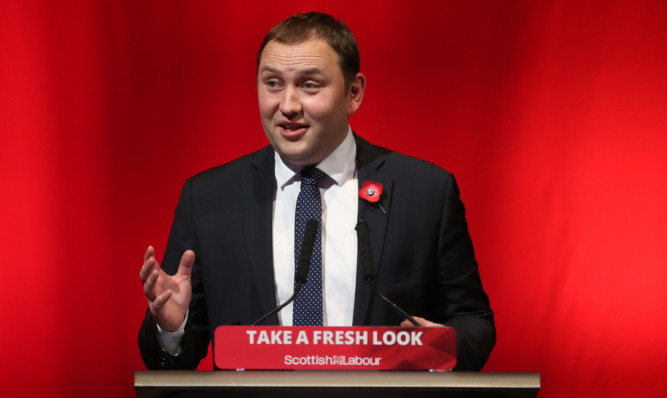We are surrounded by zombies. The living dead from the referendum. Not just individuals but whole institutions, gripped by old arguments and incapable of new thought about the future.
It is a strange turn of events. The referendum buzzed with energy and ideas, yet this place is lifeless. If by “never the same again” it was meant we would live with the undead, then I suppose that quote is accurate.
Referendum zombies walk on both sides. “No” people who can’t get beyond the Salmond quote of “once in a lifetime”. Those on the “Yes” side who can’t see their economic bullet points have turned to blanks.
For the SNP there is no need to worry. Who cares if the economic argument is dead? The momentum is irresistible. They are Scotland’s most successful democratic party ever and look set to improve on that position.
For Labour this is a problem. Walking around glaikit but menacingly is not going to do their chances any good. The party might recover the cyclical nature of politics suggests so but there’s no guarantee. Look at the Tories, once triumphant in Scotland and now stuck below 20% in the polls, so many of their natural voters making careers in the SNP.
Labour struggles with the single dominant issue of Scotland another referendum.
Their sole MP from Scotland Ian Murray argued for something a bit more than the Smith Commission, suggesting the party are trying to get beyond the Conservative position on powers but who honestly knows what this is?
A group of Labour MPs then popped up talking of a “new constitution for the UK” and seemed pretty pleased with their work but did you notice? Of course you didn’t, because that’s not the issue.
The issue is another referendum a related but different topic.
For Labour to recover, or have a hand in the game, they have to have a position on another referendum. Lord save them from suggesting another grey haired man might chair a commission, or some nuance on the tax position they need a clear mark in the earth.
At the moment they roll their collective eyes at the thought of another referendum.
This detaches them from the drift of political coverage it may be what many voters want but it’s not how political stories are written. The tales the media tell are all focused on a single punchline the next big vote.
To win popularity, you have to win media time.
To get that coverage, Labour need a positive referendum line. It’s not that hard to find: ask for a second question on any future referendum ballot paper calling for federalism.
Many of the arguments deployed by the SNP in the referendum were won. Is Scotland a country? Yes. Might it gain in confidence if self-governing? It might. Is it a reasonably wealthy country? Compared to the other 200 or so recognised nations, it is.
However, one argument was lost. Will Scotland be rich enough to afford what it has and more on independence? Probably not. The SNP have created their own bind by selling not just independence but wealth, they have got into a fix. Either they must sell independence and some economic turbulence in the short to medium term or they have to talk up possible (improbable) wealth.
This should be an opportunity for Labour. They need to exploit the SNP’s policy dilemma. Home in on the economic tangle and let the governing party feel the heat. This will at least give Labour a focus.
At the moment Labour are conceding the whole territory to the SNP. Not just the out-and-out yessers but the whole spectrum of people who don’t quite feel content with the UK.
The SNP take succour from Devo maxers, fiscal autonomy fans, those disgruntled with the Tories, people who dislike Corbyn, people who dislike Labour’s dislike of Corbyn, etc etc.
The first rule of politics is to characterise your opponents. Labour need to ensure the SNP stand for independence only, hem the Nats in to the big bang of full sovereignty. That way, space is created for a second question something short of independence but positive for Scotland.
Labour’s reluctance to do this, I understand, is because they have not worked out what federalism would mean for the rest of the UK. They are cautious about championing power for the distinct areas of England, such as the North, without knowing what that will lead to.
This is a legitimate worry but not a block to the idea. Present the idea of “developing federalism” and argue that Scotland is far down the line, followed by Wales, London and Northern Ireland.
It is OK for the North of England or the West Country to take their time in finding something that works for them. That is, after all, how it has worked for everyone else. Don’t forget, the UK is far more centralised than its continental equivalents.
A second question would break the deadlock in Scottish policy thinking and scythe down the zombie legions who clutter the landscape.
